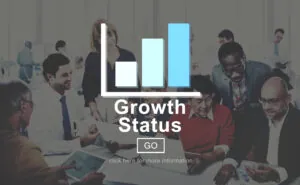Entrepreneurship is rarely a straight path. For small business owners and entrepreneurs, the journey is filled with challenges, risks, and moments of uncertainty. Yet, those who build lasting businesses often share common traits: resilience, a commitment to mentorship, strong leadership, and the ability to create a culture that supports long-term growth.
The Power of Vision and Resilience
Every great business begins with a vision. But vision alone isn’t enough—it requires persistence through obstacles and the resilience to keep moving forward when things don’t go as planned.
Entrepreneurs who succeed don’t view setbacks as failures. Instead, they treat them as opportunities to adapt and improve. This mindset not only helps in surviving difficult times but also in building stronger, more sustainable companies.
Why Mentorship Matters in Business
Behind nearly every successful entrepreneur is a mentor—or several—who provided guidance along the way. Mentorship accelerates learning, helps entrepreneurs avoid costly mistakes, and instills confidence to make difficult decisions.
For small business owners, seeking mentorship should be part of the growth strategy. Whether through formal coaching, peer groups, or industry connections, having experienced voices to provide perspective can transform how leaders approach challenges and opportunities.
At the same time, entrepreneurs should consider becoming mentors themselves. Sharing lessons with the next generation strengthens both the individual and the larger business community.
Leadership Built on Transparency and Listening
Successful leadership isn’t about commanding from the top. It’s about transparency, open communication, and listening—skills that foster trust across teams.
When leaders are clear about expectations and transparent about both successes and challenges, they build credibility. Equally important is the ability to listen—whether to employees, clients, or mentors. By listening first, leaders can make better decisions, resolve conflicts more effectively, and create stronger workplace cultures.
Overcoming Fear in Entrepreneurship
Fear is a constant companion in entrepreneurship—fear of failure, financial loss, or making the wrong decision. But the difference between thriving entrepreneurs and those who stall is how they handle that fear.
The key isn’t eliminating fear but learning to act in spite of it. Courage in business often looks like taking small, calculated risks: launching a new product, hiring that first employee, or expanding into a new market. Over time, these small acts of courage build momentum and confidence.
The Role of Culture in Business Growth
Culture isn’t just a buzzword—it’s the glue that holds organizations together. A strong, positive culture attracts top talent, increases retention, and creates a foundation for long-term success.
Entrepreneurs can shape culture intentionally by:
- Modeling values they want employees to embody.
- Prioritizing transparency and open communication.
- Recognizing contributions and celebrating achievements.
- Encouraging innovation and rewarding problem-solving.
When culture aligns with vision and leadership, businesses grow stronger and more resilient.
Creating a Legacy Business
A legacy business is more than just profitable—it’s built to last. It’s a business that makes a difference in its community, provides stability for employees, and continues to grow even when the founder steps back.
To create such a business, entrepreneurs should focus on:
- Building strong systems and processes that don’t rely solely on the owner.
- Investing in leadership development within their teams.
- Maintaining financial discipline to weather downturns.
- Leaving space for innovation to keep evolving with the market.
By combining resilience, mentorship, strong leadership, and a healthy culture, entrepreneurs can create businesses that outlast them and continue to inspire.
Practical Takeaways for Small Business Owners
Here are some actionable steps to apply these lessons in your own business:
- Find a mentor or join a peer group to gain perspective.
- Practice transparency with your team and clients.
- Invest in leadership skills like listening and clear communication.
- Take small risks consistently to build courage and momentum.
- Shape your company culture intentionally rather than leaving it to chance.
Grow Smarter With Expert Insights
Entrepreneurship is challenging, but you don’t have to navigate it alone. Surround yourself with mentors, build a strong culture, and take consistent steps toward your vision. Over time, these efforts compound, creating a business that not only thrives today but leaves a lasting impact tomorrow.
📞 Need legal guidance? Contact us today to schedule a consultation or learn more about our legal retainer plans designed for home service businesses.
🎧 Catch the full discussion on our podcast episode here:https://youtu.be/122-uT0tNTQ
The Accidental Entrepreneur Podcast
Want More?
🔹 Subscribe to our newsletter for more tips
🔹 Follow us on LinkedIn
🔹 Visit our website at BeinhakerLaw.com
Mitchell C. Beinhaker, Esq. is a business lawyer and estates attorney who runs a solo legal & consulting practice representing business owners, entrepreneurs, executives, and professionals. Through his 30+ years of experience, Mitchell has handled business development, marketing, firm management, along with business transactional work for clients of the firm. He has extensive experience with corporate governance, commercial transactions, real estate, and risk analysis. Using his years of practical experience, he drafts contracts, negotiates purchases, and can manage outside counsel for any corporate situation. For business owners and executives, he creates and implements estate plans, along with succession plans to help companies continue for future generations.
Mitchell is the co-author of 10 Ways to Get Sued by Anyone & Everyone: the small business owners guide to staying out of court, available in paperback and kindle from Amazon.
If you are a non-participating provider and need help with your NSA arbitrations, contact our office for a free consultation. You can email us at info@beinhakerlaw.com. To learn more about Mitchell and his practice, visit beinhakerlaw.com.


